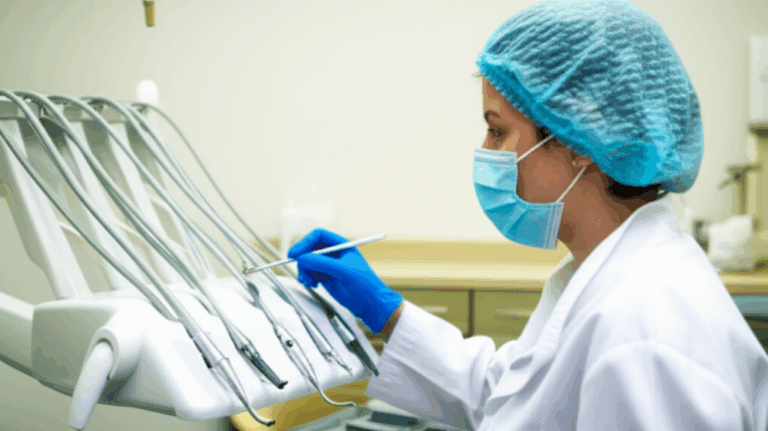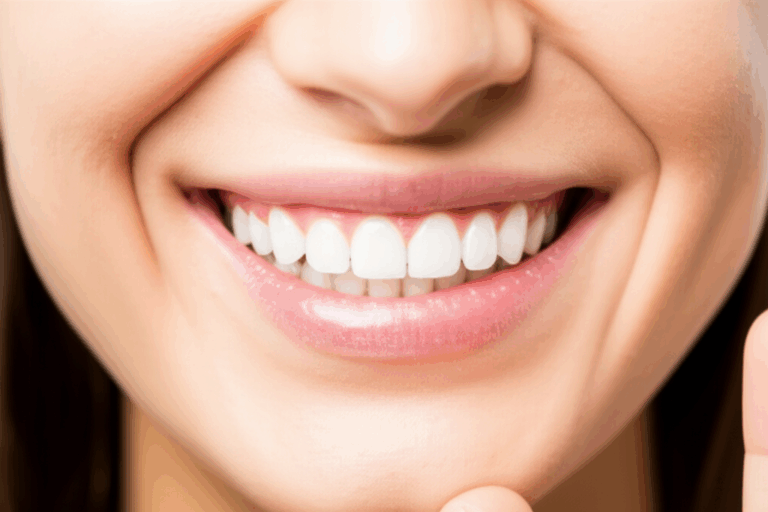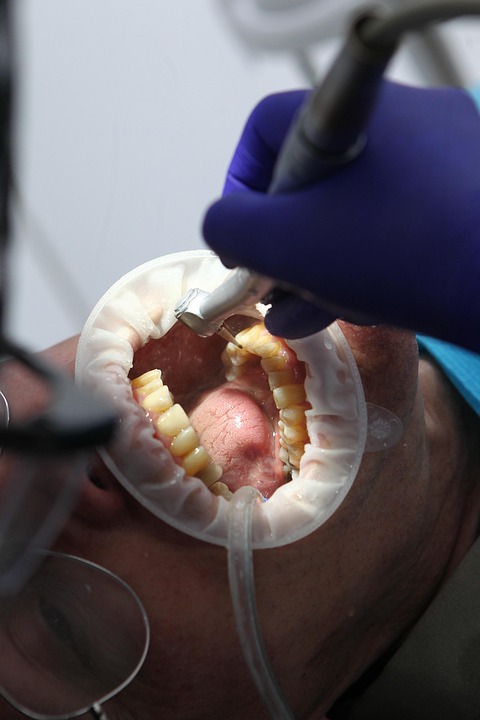
Can Dental Problems Cause Trigeminal Neuralgia? Understanding the Link Between Oral Health and Facial Nerve Pain
By sharing my story with both dental issues and facial nerve pain, I hope to show a connection that a lot of people miss—one I wish I had noticed years ago.
Introduction: My Eye-Opening Experience Linking Dental and Nerve Pain
Not long ago, I was dealing with a sharp, stubborn pain in my jaw that made even a gentle breeze or a smile feel awful. My first thought? Another tooth problem. Over the years, I had a lot of root canals, fillings, and even a broken wisdom tooth. Dental troubles had become normal for me.
But this pain didn’t feel the same. It shot through my cheek like a zap of electricity—sharp and random. I went back and forth between dentists and nerve doctors (neurologists), hoping for help. What I found out—sometimes the tough way—was that dental problems can both cause and act like something called trigeminal neuralgia (TN). Understanding this finally helped me get the right answer and, more importantly, the right treatment.
Let me share what I wish I’d known from the very beginning.
Table of Contents
- What Is Trigeminal Neuralgia? The Basics You Need to Know
- How Dental Problems Can Cause or Trigger Trigeminal Neuralgia
- How I Learned to Tell Apart Dental Pain from Trigeminal Neuralgia
- Diagnosis: My Path to Finding the True Source of Pain
- Treatment Approaches I Explored
- When to Seek Medical Help: Lessons from My Struggle
- Conclusion: Why Accurate Diagnosis Is Everything
- Additional Resources
What Is Trigeminal Neuralgia? The Basics You Need to Know
When I first heard “trigeminal neuralgia,” it sounded so medical I just shrugged it off. Now, I know it’s one of the worst pains you can have. TN affects the trigeminal nerve, the main nerve in your face, which lets you feel everything from your forehead down to your jaw.
Here’s the thing: there are two main types.
- Classical Trigeminal Neuralgia usually happens because something is pushing on the nerve, like a blood vessel. The pain comes in quick, strong bursts.
- Atypical Trigeminal Neuralgia is more of a steady, dull ache, but can have sharp pain mixed in.
The usual signs are:
- Short, electric like shocks of pain in the face
- Pain attacks set off by chewing, talking, brushing teeth, touching your face, or even wind
- Pain usually on one side of the face, following the nerve’s path
For me, the big warning was the crazy, stabbing pain that didn’t seem like any tooth problem I’d had before.
How Dental Problems Can Cause or Trigger Trigeminal Neuralgia
Like a lot of people, when my face hurt, I called the dentist first. Usually, that’s right—dental problems can directly cause or seem like trigeminal neuralgia. Here’s how.
Dental Procedures
Many of my dental visits included:
- Tooth Extractions: Taking out teeth, especially wisdom teeth, can sometimes irritate or even hurt parts of the trigeminal nerve. After I had a lower molar pulled, I had weeks of jaw pain and tingling.
- Root Canals & Fillings: One time, a root canal that didn’t go well made my nerve hurt. Doing too much or causing swelling can get very close to nerve branches and cause pain like TN.
- Dental Implants: I haven’t had one, but I’ve met people at the dentist’s who got nerve pain after getting an implant—usually because part of it was too close to a nerve.
- Jaw (Maxillofacial) Surgery: Less common, but any surgery in the jaw can damage nerves.
Dental Infections & Inflammation
Sometimes it’s not what the dentist does, but what’s hiding under the surface.
- Dental Abscesses: Once, I ignored a toothache that got really bad. The infection swelled up and pressed on nearby nerves, sending pain all over.
- Periodontal Disease: Long-lasting gum disease keeps your mouth swollen, which can make nerves in your jaw and face hurt.
- Pulpitis: Pain from an infected tooth pulp can spread out, tricking you (and sometimes your dentist) into thinking it’s nerve pain.
Structural Dental Issues
I found out that the way things are built inside your mouth matters as much as swelling or infection.
- TMJ Disorders: Problems with your jaw joint (TMJ) cause muscle spasms and pinch nerves. My jaw would pop and hurt—classic TMJ sign. This can send pain along the trigeminal nerve.
- Bruxism (Teeth Grinding/Clenching): Clenching my teeth, especially at night, made my whole jaw sore over time. This constant stress can bother the nerves.
- Ill-fitting Dentures or Dental Prosthetics: My grandma had burning pain from her dentures. It turned out the rubbing made her nerve endings angry, sometimes giving TN-like pain.
- Cracked Teeth or Cavities: Don’t forget hairline cracks! If a tooth is cracked or has a deep cavity, the open nerve can send out sharp, sudden pain.
How I Learned to Tell Apart Dental Pain from Trigeminal Neuralgia
After years of back-and-forth between tooth fixes and nerve medicine, I started writing down all the weird things about my pain. Here’s what I found—and what I wish I’d learned sooner.
Key Features of Dental Pain
- Spot: Almost always on one tooth or a certain gum area.
- Type: Aching or throbbing, usually steady.
- Set off by: Hot, cold, or biting down.
- Gets better with: Painkillers or dental work.
For example, when my molar was cracked, biting anything crunchy made a dull ache shoot through my jaw. As soon as I got a quick filling, it was better.
Key Features of Trigeminal Neuralgia Pain
- Feel: Stabbing, electric-shock, or burning pain that’s super strong, but short.
- Length: Lasts seconds or a couple of minutes, then goes away, only to come back out of nowhere.
- Started by: Light touch, wind, brushing, talking, even smiling.
- Where: Goes along the nerve path—can skip around teeth or go across a bigger area, and doesn’t always get better with normal painkillers.
My “aha!” moment was when just splashing cold water on my face set off a bolt of pain—never happened with any toothache before.
When Dental Pain Can Mimic Trigeminal Neuralgia
I learned that a big infection or broken tooth can feel just like TN sometimes. For a friend of mine, a really bad pulpitis sent shooting pain that only stopped after a root canal.
For me and others with these issues, telling the difference matters a lot.
Diagnosis: My Path to Finding the True Source of Pain
Getting diagnosed with trigeminal neuralgia was more detective work than I expected.
My First Step: A Dental Exam
I started with my dentist. He looked over my teeth and gums, took X-rays to see if I had abscesses, deep cavities, or jaw infection. Sometimes they test a tooth to see if it’s “dead”—that can mean it’s a local tooth problem rather than a nerve one.
Seeing a Neurologist
When my dentist said my mouth looked fine but the pain got worse, he sent me to a nerve specialist. The neurologist asked about what sets off my pain, how it feels, if I was numb or weak anywhere.
Imaging: The MRI and CT Scan Adventure
Soon, I was in an MRI machine. Special MRIs can check if something is pressing on the trigeminal nerve, like a blood vessel or a rare growth. My doctor thought about a CT scan, too, to look at my jawbone and sinuses.
Ruling Out Other Causes
Not until both my dentist and the nerve doctor finished their testing could they say, “You have trigeminal neuralgia. Not a tooth abscess or a sinus infection.”
I’m glad they worked together. I’ve read stories about people getting teeth pulled for pain that was really nerve trouble, or taking nerve pills for what was just a hidden tooth.
Treatment Approaches I Explored
My treatment depended on what was really going on with me—or in my case, a mix of things.
Addressing the Dental Cause
If there’s a real dental problem, the fix can be as simple as:
- Root Canal or Pulling a Tooth: Removing the infection made a big change for my friend with pulpitis.
- Fillings, Crowns, Bite Guards: Sometimes fixing my bite let my jaw relax, and the nerve pain left.
- TMJ Treatments: Ice packs, jaw stretches, and a custom night guard helped stop my nighttime clenching—a must for anyone with bruxism pain.
Don’t think you always need fancy stuff. Sometimes a good crown from a trusted crown and bridge lab solves what you think is a nerve headache.
Managing True Trigeminal Neuralgia
When the problem was my nerve, things got a bit harder.
- Medications: My neurologist gave me carbamazepine, a medicine that can help TN. Others try gabapentin or muscle relaxers.
- Surgery: I haven’t needed this, but some people need surgery—like moving a blood vessel away from the nerve, or using small amounts of chemicals or radiation to calm the nerve if medicine won’t work.
- Nerve Blocks: Once, a doctor numbed the nerve with a shot, which gave me a few weeks of relief.
Alternative Therapies and Self-Care
These didn’t cure me, but they helped me get through each day:
- Botox Shots: Somebody in my support group eased bad muscle spasms this way.
- Acupuncture and Meditation: I gave acupuncture and meditation a go—even if it didn’t fix the nerve, it helped me unclench my jaw and sleep better.
I’ll add that good mouth care is so important. Swelling or infection makes everything worse.
When to Seek Medical Help: Lessons from My Struggle
If you’re going through face pain that:
- Lasts more than a week or two,
- Doesn’t get better with normal dental fixes,
- Comes with tingling, numbness, or weakness,
you should see an expert. Waiting for pain to “just stop” only made things longer for me.
Don’t feel silly asking to see a specialist—a dentist, oral surgeon, or nerve doctor. Each of them knows a piece of the puzzle.
Conclusion: Why Accurate Diagnosis Is Everything
If I can give one piece of advice, it’s this: Don’t just guess that every face pain is a toothache, but also don’t assume it’s always a nerve problem. Teeth, jaw, and face nerves are tied together in complicated ways. A deep cavity, a bite that’s off, or grinding can start pain that is worse than you’d think.
Working with both dental and nerve experts finally got my pain under control—and let me sleep again. If you see signs like mine, keep asking questions, look for other opinions, and always push for a careful check.
After all the trouble, I found that the real link between dental problems and trigeminal neuralgia is this: when you get the right answer, you can finally get better.
Additional Resources
If you want to avoid dental-related face pain, learning more about overall teeth health and common dental diseases really helps. Being informed gives you the best chance at a pain-free smile and peace of mind.
Remember—what feels like a simple toothache could be your nerves warning you about something bigger. Trust your gut, trust your doctors, and trust the process. You are not alone.








